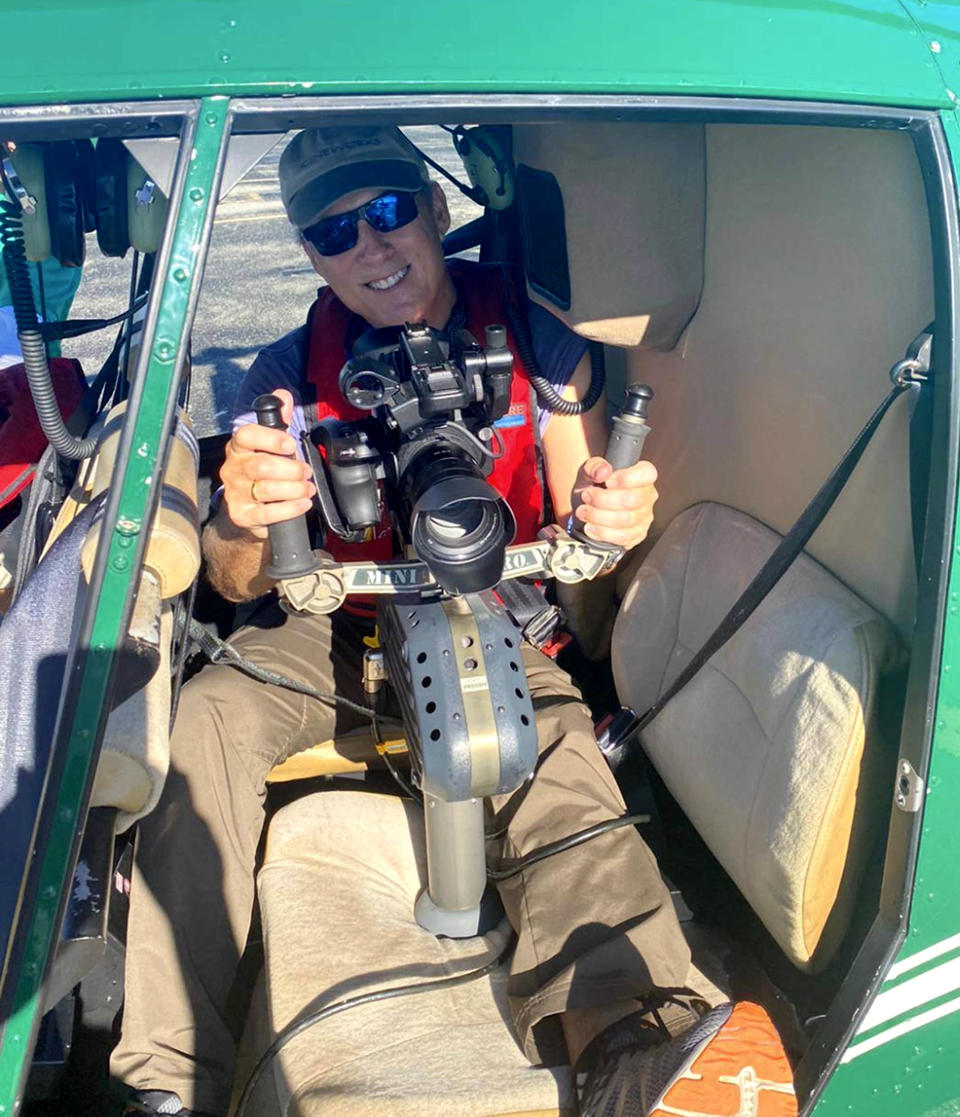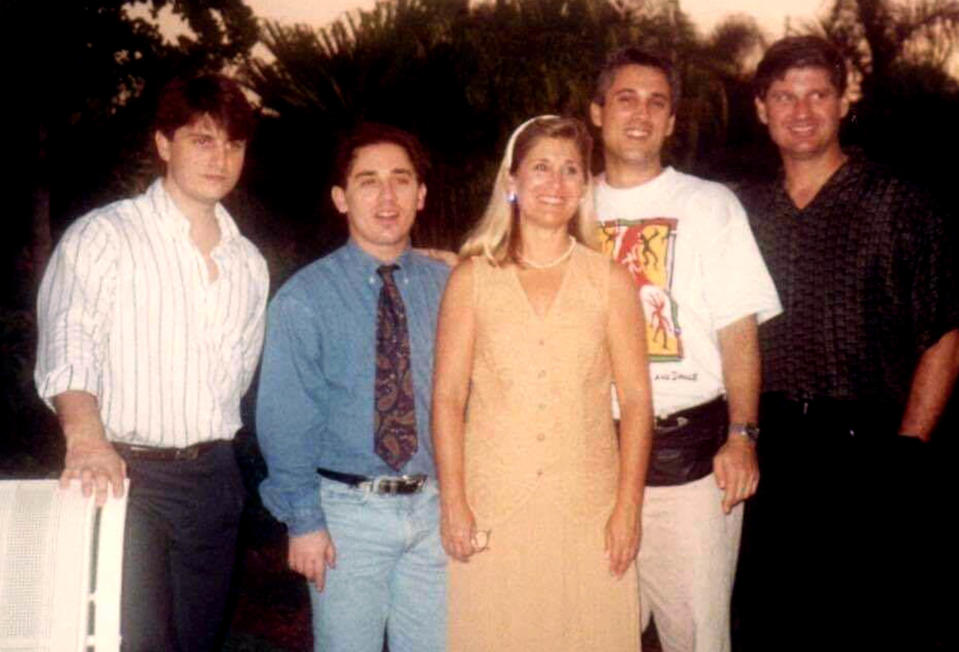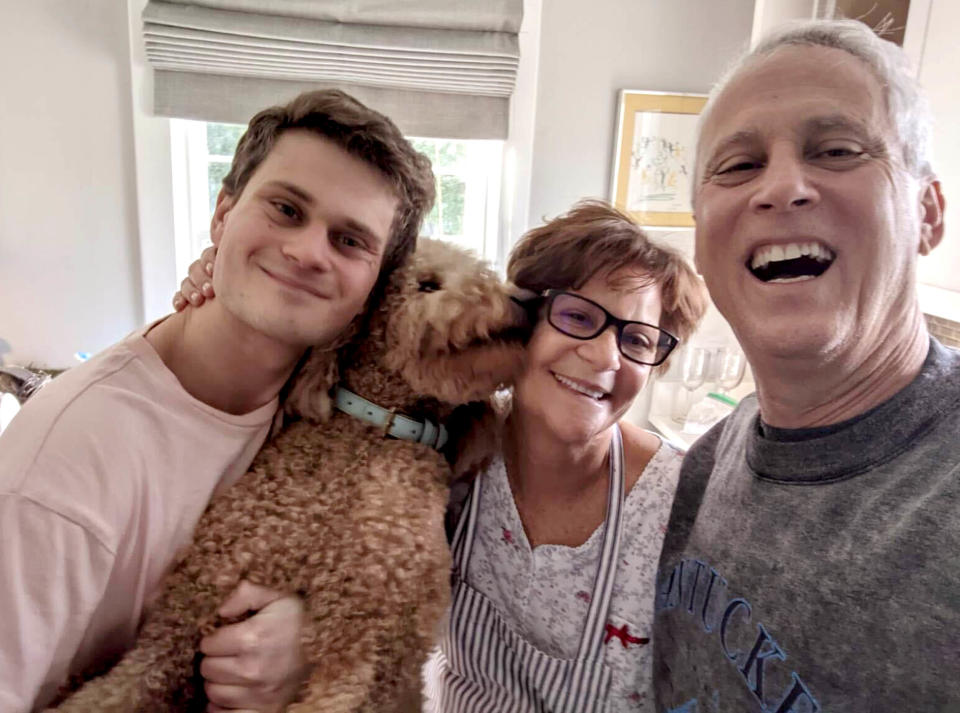Prostate cancer survivor wants men to overcome 'machismo' and fear of screening
After Michael Justiz’s younger brother was diagnosed with prostate cancer, Justiz realized he needed to be monitored for it. For years, he underwent blood tests to learn his risk for prostate cancer. His vigilance paid off when he was diagnosed with stage 1 prostate cancer, giving him a much better outlook than if it would have been found later.
“The earlier you catch it, the better,” Justiz, 65, of Miami, tells TODAY.com. “I’ve lost friends and other family members to prostate cancer.”
A family history
Justiz’s maternal grandfather died from prostate cancer and his father also had it. When his brother, who is nine years younger than him, was diagnosed, Justiz felt he was “put on notice.”

“Because of the family history, I said, ‘OK, I’m just going to get ahead of this (and get screened),” he says.
Screening for prostate cancer involves a blood test that looks for something called prostate specific antigen, or PSA. The prostate produces PSA, and the levels spike when one has prostate cancer, according to the U.S. Centers for Disease Control and Prevention.
In 2017, Justiz’s doctor told him that his “PSA is going a little high,” and they biopsied his prostate.
“The biopsies came back positive for cancer,” he says. “When somebody tells you (that) you have cancer … you don’t hear a whole lot more for the next few minutes because you’re processing the evil C-word.”
Luckily, Justiz’s cancer was stage 1, which makes it easier to treat. At first, his doctor recommended surgery, but Justiz felt unsure about that. So he started researching various types of radiation. He found a hospital that offered a type of targeted treatment that he thought would work for him.
“The MR-Linac is like a magnetic MRI but with a radiation gun,” he says. “They can target (the tumor) specifically without just obliterating everything inside with radiation. And it seemed like the best possible route.”
Justiz underwent 10 radiation treatments. Prior to radiation, he had gold markers placed in his prostate as “GPS markers so you can tell the position of your prostate,” he explains. That allowed the radiation to target only the areas where the cancer was.
“(My) terrific doctor prepared me mentally and emotionally to a certain degree for the whole process,” he says.
Luckily, Justiz experienced very few side effects from treatment.
“Tinges of pain happened afterward. I was like, ‘What the hell is this?’” he recalls. “The doctor told me, ‘Yes, this is all recovery from the radiation and eventually it all subsides.’”
The pain has since gone away, and two months after he finished treatment, Justiz underwent another PSA test and his “numbers had fallen substantially.
“(It) was a big, big drop,” he says. “It continued to drop to near zero.”
Prostate cancer
Prostate cancer “is extremely common,” Dr. Marcio Fagundes, medical director of Radiation Oncology and Photon Therapy at the Miami Cancer Institute, part of Baptist Health South Florida, tells TODAY.com. “It’s really the second most common cause of death after lung cancer.”
Like many other cancers, finding prostate cancer in earlier stages means better outcomes for patients.
“Most patients are diagnosed at an early stage thanks to the availability of PSA blood tests, which can identify very early and very curable cancer,” Fagundes, who also treated Justiz, says. “The lifetime risk of prostate cancer is about one in seven men.”

Justiz, like many men, did not have any symptoms before he was diagnosed. According to the CDC, symptoms can include:
Trouble urinating
Weak or interrupted urine flow
An inability to completely empty bladder
Blood in urine or semen
Pain or burning while urinating
Persistent back, hip or pelvic pain
Pain while ejaculating
The American Cancer Society recommends that Black men should consider screening at 45 and other groups should start at 50 or older. The recommendations encourage earlier screening for people with a family history, like Justiz, too.
“Family history has an important impact when you have first degree relatives, especially multiple first-degree relatives like fathers and brothers, with prostate cancer,” Fagundes says. “Your risk of having prostate cancer increases.”
Treatment varies depending on the stage of a patient's cancer, Fagundes says. Some people with very early stages can even just be monitored. Those who need treatment will usually undergo surgery or radiation. The type of treatment Justiz had, Mr-Linac, reduces the damage to other areas of the body.
“That can potentially have benefits in terms of reducing certain toxicity,” Fagundes says.
He says the important thing that people should know is that it’s easy to find prostate cancer before it becomes deadly.
“The main message is that this is a disease that fortunately has a blood test that can in most cases … detect it early and in doing so we identify prostate cancer in the earliest curable stages,” Fagundes says.

Know your risk
Justiz wanted to share his story to encourage others to undergo their PSA screening. He believes that people misunderstand the cancer and their risks from dying of it.
“I’ve lost three friends and family members to stage 4 prostate cancer,” he says. “The odd thing is when you tell somebody, ‘Oh I have prostate cancer,’ they think (doctors) can handle that. I’m like, ‘No, people still die from it.’”
Since undergoing treatment, Justiz has been cancer free and has been able to continue working as a producer in advertising and marketing. He believes some people fear being screened for prostate cancer because it can involve a digital rectal exam. As a Cuban-American, he says he sees how machismo has stopped some from undergoing an exam. But Justiz hopes they overcome that.
“Machismo doesn’t get you to your daughter’s wedding. Machismo doesn’t get you to see your son graduating from college. What does is surviving,” he says. “Take the time to take care of yourself first.”
This article was originally published on TODAY.com

